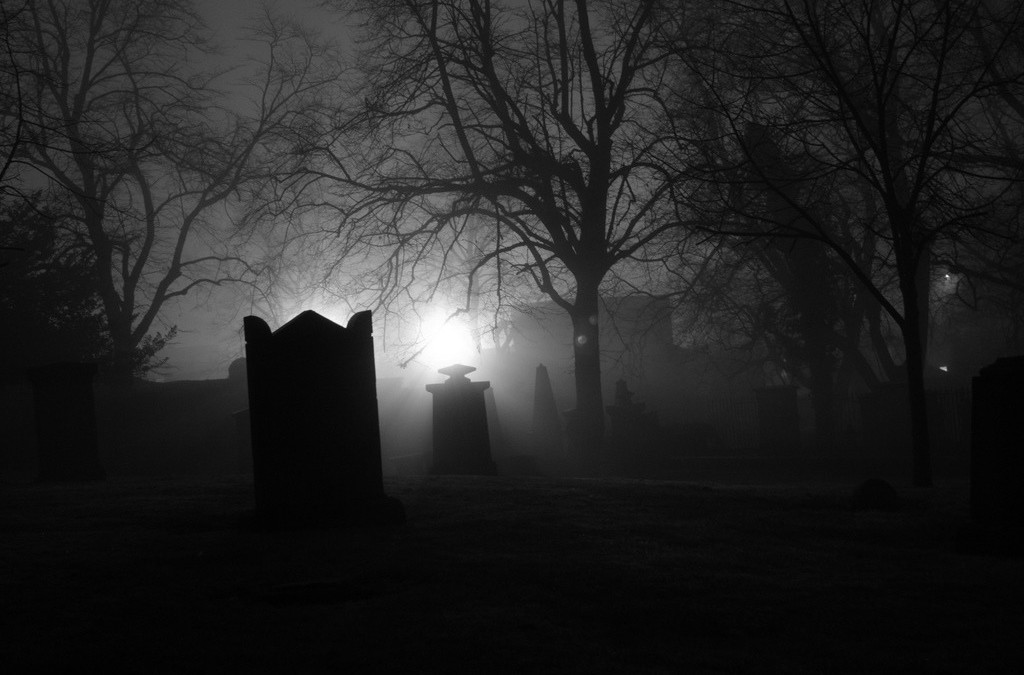
by Fitz | Oct 31, 2019 | Essays, The Crafted Word Blog
I wrote this short story about twenty years ago after hearing an old folk tale retold by Jerry Bell. I took the gist of the story and remade it as a story set in a prison in Maine to retell myself as a story. Eerily similar to The Shawshank Redemption—though Hollywood is not knocking down my door. At any rate, I like it as a good story for Halloween. If you like understated creepiness, this is for you.
Happy Halloween…
“Your Honor:
It was down mid coast Maine where this all occurred. A long way still from Boston where I am telling you this story. I was there in Stonington, in the state prison serving five years for the thieving and scuttling of a pair of dory’s belonging to the Bainbridge brothers—a no good pair who’d been hauling and stealing lobster from my own traps…and many another I suspect. I’m a decent, honest man. I owned up to everything I done. I didn’t want a lawyer so I didn’t even take me a lawyer. I thought they would see right for right, but it didn’t work out that way. Hit my family hard to lose me for so long…but that has stories of it’s own and nothing to do with the queer thing I was privy to as the cellmate of a certain Enoch Jones, sentenced to life in that hard place for the alleged murder of his entire family…his wife, his wife’s parents and five young children. Enoch always denied anything to do with that horrible and sensational crime…and we believed him…not that it is much solace to a lifer. I’d hear him some nights writhing and a turning in his bunk: “No,no,no…my babies…my babies.” Other times he’d sit and stare, tears just streaming down his face. Not the angry tears a lot of us shed just for being holed up in that hell of a prison. No, he was touched in a special way that even the meanest john doe in there couldn’t take to him unkindly. All the injustice in the world was wrapped up in that poor man…so much so that I know I wasn’t the only one who would very gladly trade places with him if it meant he could get out of that prison and lay some flowers on the grave of his family, and maybe, with God’s grace, find a little peace in his tortured world.
True fact is that a lot of people die in prison. Some that been incarcerated for so long, and out of touch with their kin for so long, that their death goes pretty much unnoticed. Those poor souls get buried in a field just north of the prison, carted out the west gate in Homer’s horse drawn wagon. Homer runs the carpentry shop. We prisoners all build things and they sell them in the Prison store right there on Route One. Mostly white pine furniture…some ship models too. Warden says it buys us turkey dinners on thanksgiving and clove ham on Christmas…cigarettes and stuff. Mostly it’s a way for us to kill some time, time being the biggest enemy of any prisoner. They say Homer had been there for fifty years or more, and that he didn’t have no other place to go. At least the State of Maine give him a roof, meals and a little something to do. At any rate, when one of them inmates died, they’d toll the prison bell in a slow mournful way for a good ten minutes or so. About the only tribute most of them ever got in their lives. That would be the signal for Homer to get a coffin built. He’d never have one ready beforehand—saying that it gives the dead man a little dignity to have his final resting place be custom made. Them coffins were nothing fancy but they were solid built out of the clearest pine we had in stock. Homer and Enoch had a real bond. They were an odd couple: the rich white businessman from Portland town and old Homer, growed up he said somewhere down south, but now so Maine he looked forward to the brutal winters, the smell of woodsmoke mixing in the stench from the processing plant. Everyone felt for Enoch, even so far as the guards and the warden himself. No one gave it much thought how much time Enoch spent in Homer’s shop. Doubt anybody would figure that Homer would be behind the first prison break in Stonington since the last war.
It wasn’t like there was a lot of dying going on in that Stonington prison, but in early November of 1972 Joshua Corkin come down with a truly severe pneumonia. Enoch spent a lot of time caring for Joshua, reading to him long poems and even longer praying with him from an old hymnal of Homer’s. One night Enoch sat on my bunk and very forthright told me the plan that he and Homer and Joshua had worked out. He said he owed me the truth for all the years I stood by him. And now that Joshua Corkin was so near to dying, it was time to make his escape from that hell in Stonington Maine. It was only then that I realized how desperate Enoch was to get out of prison. He said a wrong still had to be made right. That there was a man out there who had brutally slaughtered his family and that justice needed to be served. He said that Joshua laughed to think that they would be bunkmates for a while.
They all conspired to seal their fates on the evening that Joshua died. It worked like this: When Joshua died old Homer would retire to the shop and build for Joshua that custom coffin he so deserved but, maybe, given the circumstances, slightly larger. Enoch had the run of the place more than any man before or since, so it wouldn’t seem too peculiar for Enoch to give his friend Homer a hand in building the coffin. Before Joshua’s body was to be hauled away Enoch would sneak into the shop, climb into that coffin and find a space sidled up next to poor dead Joshua. Homer had rigged up a latch so that Enoch could lock the lid from the inside also. Homer would then haul the coffin up to the graveyard to be buried. After a few terse comments from the local parish priest Homer would fill in the grave and return to the prison like he done so many times before. The warden would never bat an eye when Homer asked to go out a few hours later and set a stone on the grave: Homer would carve it out of a foot square of granite: just a name and number—and the day that Joshua was born and died. It was then that Homer would dig Enoch free and set him on his way, with not a soul (aside from Homer and myself) knowing how he made his escape.
Well, that very next evening, just before dinner the mournful bells began their tolling and all of us in that prison in Stonington Maine bowed our heads in personal prayer for the soul of Joshua Corkin. Only a man in prison, deserted by family, and never at peace with God, knows the true horror of lonely, senseless death. I felt bad for Joshua but I also felt that he was dying a hero of some sort. I saw Enoch talking to the chief guard… then he winked at me. Last time I saw Enoch he was heading across the yard towards Homer’s carpentry shop. Best I can figure, and it haunts me some to think about it, is that everything happened this way: Must have been when Enoch got to the shop the coffin was already set to go. He must have heard the priest, the warden and Homer coming across the yard towards the shop. Enoch must have climbed into that coffin pretty quickly. It wasn’t as big, I imagine, as he hoped it would be. Air would be scarce during the next few hours and a little extra space would buy a little extra time. It wasn’t long before the horses snuffed and stammered and pulled out of the prison gate and made their way to the graveyard. The priest would never say much before the shoveling in would begin. I reckon Enoch was happy that the service was as short as it was.
It must have been a God awful quiet down there. I’m sure the dead don’t make for pleasant company. Time just crawling by and the stench of a corpse beginning to decay. I suppose at some point Enoch risked losing a little air for a look at his pocket watch. I try not to think of Enoch in that dark chamber, in the last flickering and dying light of his matchstick, gasping uncertainly for what little air was left, staring with a certain horror into the face of his old friend and would be savior, Homer.
I didn’t discover anything until mid the following day when I saw Louis, the stone mason, wrestling a block of granite into the Wagon. Simply said: “Homer, a friend to many.” I put it all together from there.
The State of Maine spent a long time trying to find Enoch. The warden said he felt betrayed and took it out a bit on us. Joshua died the very next day. I went and said a prayer with him just before he passed. I told him to hold on, that Enoch and Homer were on their way over.
Memories are long and truth, I guess, should always be told. I’m a good and decent man and so got my parole at my first hearing. On the first dark and moonless night I dug up Enoch and took him and buried him alongside his wife and children; I cut the turf so neat clean and replaced it so tight that no one ever knew. Then I scattered the prettiest flowers the world has ever seen. I also took care of Enoch’s business for him. I was his cellmate for over three years. I knew where to find the bastard. It is strange how you can take a life and not feel a thing. Enoch’s nightmares were always a torture to me.
But no more.”
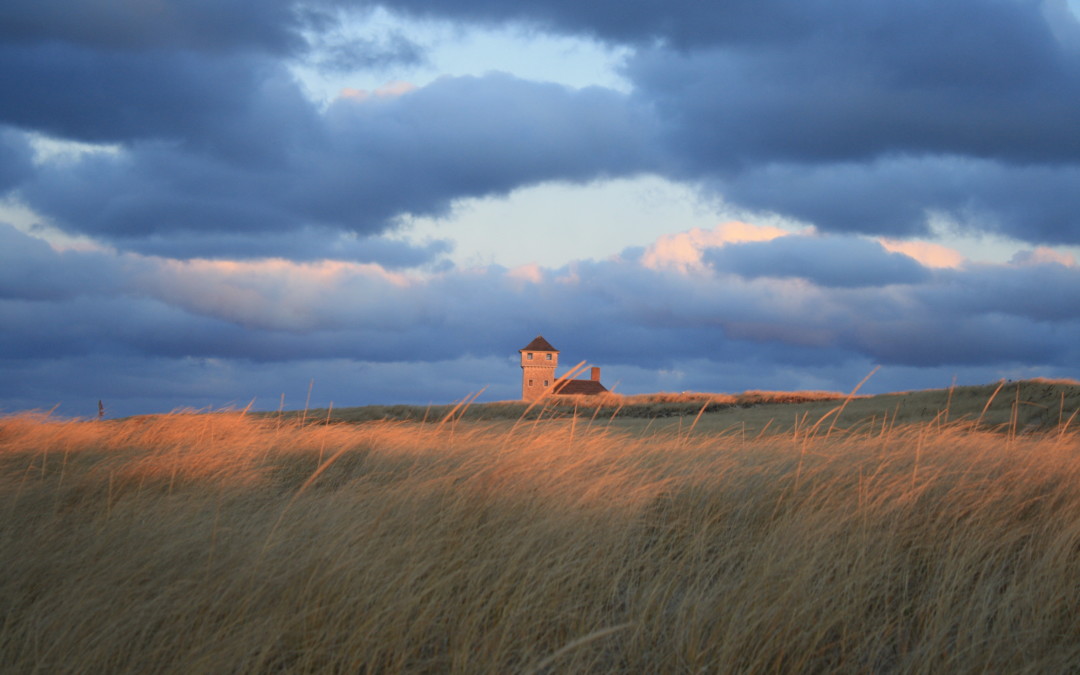
by Fitz | Oct 14, 2019 | Essays, The Crafted Word Blog, Workshops
Years ago I wrote in my journal that my goal in life was to be small, be simple, be wise, be happy, and above all be ready. I cannot honestly say that I have achieved all of these goals, but these are still the “ideals” I strive to live in my life. These are my necessities—and as necessities they are by nature, finite, as opposed to my “wants,” which are seemingly endless…. Our essential question for the year is “What are the necessities of a fruitful and rewarding life?”
My necessities surely are not the same as yours. Perhaps you have never stopped to consider what you consider the necessities of your own life. But you should, and it is my earnest hope that you will. The great writer and philosopher James Henry once wrote that “thoughts are only made real when put into words.” My goal for the year is to help you make real what is in your head and heart. In essence: to begin to discover your true and most perfect self, and to build a foundation under your dreams upon which you can build a good and lasting life. I cannot tell you what this will look like, but I can point you in the right direction–or at least, a direction. The rest is up to you. Your summer reading books,
Your summer reading books, Into the Wild, and The Outermost House describe the attempts by Chris McCandless and Henry Beston to seek profoundly rewarding lives by removing themselves from “society” and attempting to live simply and wisely and as close to nature as possible. Chris, of course, met a calamitous end in the wilds of the Yukon. Beston thrived in a less harsh (though in many ways no less wild) year spent in a small cabin on the outer beaches of a Cape Cod that at the time was a pretty much untamed and scarcely visited stretch of lonely sand and surf. McCandless’s story was told for him by another writer, Jonathan Krakauer, who found Mccandless’s adventure to be newsworthy and worth telling. Beston told his own story in descriptive prose that is widely considered some of the best writing in the English language—though I am sure some of you will disagree with that assertion! For many of you, The Outermost House might have seemed like the most boring book you were ever forced to read. No harm intended. I get that, and I get why you might feel that way. Nothing much really happens: he walks on the beach, describes birds and waves and winds and storms with excruciating detail, but there is no obvious crisis, no looming antagonist to put him in peril. Putting the two books side by side is almost unfair. In
In Into the Wild at least there is true adventure—an adventure which killed Chris in a slow, lonely and cruel way. The Outermost House, on the other hand, reads more like an intellectual and overly detailed diary shared with kind and forgiving friends. So why is it that I am perfectly satisfied to read Into the Wild once and be done with it, yet I can pick up The Outermost House year after year and reread it with ineffable joy and satisfaction? Perhaps it is because Beston’s words grow with me as I grow (and yes, I am still growing!). Perhaps it is because Beston loved and studied the wild loneliness he experienced, while McCandless seemed to continually fight with an unforgiving and harsh nature (and his own harsh nature) in every step of his fateful journey. Perhaps I remember a side of me that was once like Chris McCandless—a darker side of my life best forgotten. More than likely, I return to Beston because he continually gives back to me. I feel wiser and more complete and more human every time I read his words. His words make me want to bring my life back to the wheel and polish it to a more perfect edge, an edge that can cleave apart the tangle of weeds I might be lost in. His words affirm my own desire to live simply and deeply. Mr. Farely and I did not assign these books in an inconsiderate way. In fact, the decision was quite considered. Our hope is that we can start a new conversation with all of you and each of you, and that you can start a conversation with yourself–a conversation that will fill our coming year together. So ask yourself: Why do you want what you want? What do you really need? Maybe there is power in simplicity….
More than likely, I return to Beston because he continually gives back to me. I feel wiser and more complete and more human every time I read his words. His words make me want to bring my life back to the wheel and polish it to a more perfect edge, an edge that can cleave apart the tangle of weeds I might be lost in. His words affirm my own desire to live simply and deeply. Mr. Farely and I did not assign these books in an inconsiderate way. In fact, the decision was quite considered. Our hope is that we can start a new conversation with all of you and each of you, and that you can start a conversation with yourself–a conversation that will fill our coming year together. So ask yourself: Why do you want what you want? What do you really need? Maybe there is power in simplicity….
Perhaps it is because Beston loved and studied the wild loneliness he experienced, while McCandless seemed to continually fight with an unforgiving and harsh nature (and his own harsh nature) in every step of his fateful journey. Perhaps I remember a side of me that was once like Chris McCandless—a darker side of my life best forgotten. More than likely, I return to Beston because he continually gives back to me. I feel wiser and more complete and more human every time I read his words. His words make me want to bring my life back to the wheel and polish it to a more perfect edge, an edge that can cleave apart the tangle of weeds I might be lost in. His words affirm my own desire to live simply and deeply. Mr. Farely and I did not assign these books in an inconsiderate way. In fact, the decision was quite considered. Our hope is that we can start a new conversation with all of you and each of you, and that you can start a conversation with yourself–a conversation that will fill our coming year together.
So ask yourself: Why do you want what you want? What do you really need? Maybe there is power in simplicity….

by Fitz | Oct 3, 2019 | Collaborate, Create, Essays, The Crafted Word Blog, Workshops
Appophobia:
A lingering fear and distrust of apps
Always do what you are afraid to do.
~Ralph Waldo Emerson
We have evolved into what we are because we have somehow learned to balance mistrust and wariness of danger with a counterbalancing willingness to explore and exploit the rewards of equally dangerous undertakings and adventures. The stories of our histories would be tepid and soon forgotten if not faced with struggle and perseverance that somehow revealed a greater truth and wisdom and courage to live in a higher state of existence. If we do not accept and embrace this, then we may as well just relegate ourselves to a more diminished and ignorant self. Mighty high sounding talk, I know, to lead into a discussion of apps on an iPad.
But, it is what it is…
Every folder on my iPad is essentially a toolbox where I keep useful tools. I never let any one toolbox contain more tools that can fit on the cover screen of any folder—usually something like 12 apps, most of which I seldom use, but some that are essential to my daily workflow. It is no different than the toolboxes I used when teaching shop or managing the various projects I undertake at home.
I have a toolbox for plumbing supplies and tools. I have a toolbox for painting supplies. I have a toolbox for woodcarving. I have a toolbox for working on my car and bus and boat. All of these are kept in my workshop and in my shed along with benches, shelves, vices and hooks and hangers.
No one has ever said to me: “Fitz, you have too many tools in too many boxes in too many places.” I simply have what I need and what has evolved to serve the purposes and tasks of my everyday life. And still I sometimes have to go to Tom Cummings shop or a friend’s garage or another friend’s shed to “borrow” what I need, but don’t have.
So why the incessant hubbub I hear about too many apps on a student’s iPad? If they are useful to him or her—or me as their teacher—it is a useful app, regardless of how often a specific app is used. My shop students routinely come to a shop filled with all manner of tools—most of which those same students have little idea how to use properly.
And the funny thing is that it never seems to bother them or their parents or the school because everyone intuitively trusts that what is there is a useful and, ultimately, a necessary part of a dynamic and well-equipped shop.
And many of those tools in the shop are extremely dangerous tools! Way more dangerous than GarageBand, Book Creator, iTunes U and iMovie. This “appophobia” is as senseless as it is crippling, and the clarion call to forbid these apps is being led by people who have no clue themselves how to use and exploit these tools for academic benefit.
The usual fallback for declaring an app to be useless is to lament that learning new apps is confusing and distracting and the sign of an out-of-touch teacher. With that logic we should throw out quadratic equations, the krebb’s cycle, the causes of The Civil War, and the proper use of conjunctive adverbs. We should ban backpacks with more than three textbooks, any loose sheaves of paper and calculators with any kind of trigonometry functions. We shouldn’t give a lecture that is more than five minutes long or occasionally ask kids to just remember the assignment—as in just remember the conversation we had at the end of class.
Imagine the horror of so many when the first pencils with built in erasers tumbled off the assembly line. Mistakes could now be hidden with a simple flick of the wrist. How could teachers even begin to know what students did and did not know? Imagine a school allowing students to use textbooks to supplant the power of a teacher’s oration on any given subject matter?
Education is like a shark: if it does not continue to move forward, it dies. If education does not move in the direction of its prey, it, too, ultimately weakens and dies. If we put myopic restraints on a teacher thing to put new and dynamic power into the hands of his or her students and forge a new and better way of learning, then education dies. No fish can ever be caught without stirring the waters, so we should embrace the messiness of learning as the tailings of a miner’s labor.
Which brings me back to this iPad of mine tapping away in the stillness of a late September night. It is my poet’s hoe, my pick-axe, chisel and plane. It is doing what I need it to do at this or any other given point in time. In a few minutes (I hope) it will be the final chapter in a good book. Tomorrow it may record my songs, film my video, craft my essay, fill my journal, create my quiz, model my discussion, post my assignment, paint my canvas, grade my homework—and when I don’t want it or need it, or feel if is useful, it simply disappears.
Back into my shed, my toolbox, or some dusty shelf…
The iPad is not a tool or a device or a thing. It is an enabler of possibility. Apps are not a panoply of evil undertakings; they are merely shovels and spades that let us dig deeper and faster and cut our corners as clean and square as Mike Mulligan and Mary Anne.
And I do not have a problem with that.

by Fitz | Sep 20, 2019 | Essays, The Crafted Word Blog, Workshops
I am just about to sit down, sip on a cup of tea and grade your essays. Sometimes it is daunting to look at the list of submissions–then look at all the other things in life I need to do–and find the energy to begin…but it is what I have to do. I trusted you to do your part, now I must do mine. Since I have so many papers to grade, I have a bit of a system I use. It works for me, and I hope it will work with you. I do not really believe in the term “rough draft.” Every essay should be as good as you can possibly make it be. Then again, no essay is really as good as it can be. Most of your essays use a rubric of some sort to guide the flow, structure and content. If you pay attention to that and if you follow the “details” of the assignment, you will do well. Usually I put checks where you do well; I put slash marks where a new paragraph should be; I circle areas where there is a punctuation, grammar or proofreading mistakes, and I leave a comment with overall assessment of your work. And then I give it a grade.
If you want to revise, rewrite or rework your paper, I will certainly allow that, and I will increase your grade “if” you sincerely work to fix the mistakes. If you don’t, I am not going to chase you down. I will simply hope you work more diligently on the next paper or project. I do my best to return your papers in a timely way. If your paper is not turned in on time, it may take me a while to grade it. I just do not have the time to grade papers at your leisure. Usually, I will ask you to write a brief “metacognition” attached to each paper that lets me know about your experience in writing the paper. It helps me to understand the good and the bad of any assignment, and it should help you understand more fully what you need to work on as you grow and mature as a writer.
Metacognitions do count as journal entries! Sometime tonight your iPad should ding to let you know your paper is in. Please look at your essay, read my comments and try to figure out why I marked what I marked. I screw things up all the time when I write. I get it.
Writing well is not easy. Smile and resolve to make what could be better, better! It is what all writers worth anything always do.

by Fitz | Sep 16, 2019 | Essays, The Crafted Word Blog, Workshops
If you want to learn to write well, start writing and do not stop. If you do not want to learn to write well, this will be a wasted class—empty time leading towards a deeper emptiness. We are all born communicators. We all feel angst when our words are misunderstood, misinterpreted, and misplaced. Our lives, and the lives of those around us, are surrounded and immersed by our words. It is the one continual reality that will pervade our lives, so why not create the space and the time to richen the time given to us to learn, practice and share in the process of crafting our thoughts, ideas, hopes, dreams and experiences in memorable and profound ways? For better or worse, we are judged by our words and our actions, but it is primarily through our words that we are remembered, especially if the power of our actions and our words are brought together to perfect our humanity and inform the directions our lives take.
I do not teach writing to help you get into a better school or get a better grade. I teach writing because I believe writing can make your life a more fulfilling, more wise and more centred life—a life that hopefully leads to a golden and ripe old age surrounded by family, friends and the contentedness of a life fully-lived. The academic benefits of writing well are just a no-brainer to me, and you will certainly not regret learning how to write a good essay in the crunch of pressure and deadlines, and much of this year will be spent learning to do just that; but, the true value in writing in a sustained and continual way is that it will help you find the words that truly express what is in your head and heart at any given moment—not simply in response to a writing prompt or assignment.
You will not grow old (or perhaps even grow up) wishing you had spent more time on your xbox or Snapchat, but you will always regret the time and opportunities you let slip away from you. I certainly do. My shelves are full of books I wished I read. My mind is full of the would haves, could haves, and should haves that I either ignored or passed off as, at the time, not worth the effort. My life is very, very good, and I am supremely happy, yet I know I have left too much trash in my wake. Too many times I turned around before reaching the peak of the mountain; too many times I took the road more travelled by, and too many times I let silence fill the void that words should have filled.
If I can get you to willingly fill voids with words, then I can say that my job is done. If you leave this year with more love and lust for words, I will at least know that I helped prepare you for the unexpected twists and turns your own lives will take. If you pick up a book or write in your journal simply because you want to, then I will notch that on my stick of life as a great and worthy accomplishment.
So this is why I do what I do. The hard part is that I cannot do it without you. You have to be the writer. I can bring you to the river, and I can tell you what I know, but you are the one who has to jump in and swim.
No one ever learns to swim by standing on the shore.

by Fitz | Sep 12, 2019 | Create, Essays, Share, The Crafted Word Blog, Workshops, Write
 So much of school can—and often is—hard, but what should be easy, should be made easy. Finding, creating, and submitting assignments should be easy. Receiving timely assessments and grade updates should be an expectation of every student and a practice of every teacher. I have spent the last 12 years working and trying to make my curriculum a paperless stream that is simple and effective, but for it to work, you must be willing to swim in that stream. The school is embarking on a noble effort (Using My Fenn and Finalsite) to help facilitate how we assign, grade, and manage our respective classes. For the most part, and if used wisely, it is a pretty good system. For my part, I will post all of your assignments on Finalsite and allow you to see your assignments and view your grades in a fluid and ongoing way throughout the year. It is important that you check your grades regularly to be sure that I have not made any mistakes when entering your grades. It does happen sometimes, and I am more than willing (even eager) to fix what is wrong. We also take the idea of a digital workflow a bit further than is possible with Finalsite, so it is important that you embrace and utilise the following resources.
So much of school can—and often is—hard, but what should be easy, should be made easy. Finding, creating, and submitting assignments should be easy. Receiving timely assessments and grade updates should be an expectation of every student and a practice of every teacher. I have spent the last 12 years working and trying to make my curriculum a paperless stream that is simple and effective, but for it to work, you must be willing to swim in that stream. The school is embarking on a noble effort (Using My Fenn and Finalsite) to help facilitate how we assign, grade, and manage our respective classes. For the most part, and if used wisely, it is a pretty good system. For my part, I will post all of your assignments on Finalsite and allow you to see your assignments and view your grades in a fluid and ongoing way throughout the year. It is important that you check your grades regularly to be sure that I have not made any mistakes when entering your grades. It does happen sometimes, and I am more than willing (even eager) to fix what is wrong. We also take the idea of a digital workflow a bit further than is possible with Finalsite, so it is important that you embrace and utilise the following resources.
The Crafted Word: Fitz’s Reading & Writing Website
Website: http://thecraftedword/fitzenglish8
The 8th Grade pag e and Freshman pageon my website (and the website as a whole) will always give you quick and easy access to the whole spectrum of what we are doing in class. Additionally, it allows me to share my own blog, view and download my resources and rubrics (of which I have many!) and it serves as a central hub to read my essays on writing and reading, to study my punctuation and grammar rules, to learn and practice essential vocabulary, engage in class forums, and access our class writing community. In short, it contains everything I know and have created over the years to help anyone become a better reader and writer. It is also easily accessed anytime by any device connected to the internet. Bookmark the page and you will always be “one click” away from knowing what to do.
Blogging: Creating and Maintaining a Personal Blog
- Required Apps: Weebly (free download from the app store),
- Day One: a private journaling platform (paid app $3.95)
As a long time writer in my own right, I have always kept a journal, which later in life evolved into an online blog where I share my words—songs, poetry, essays, journal entries, videos, podcasts and photo galleries with whomever is interested or willing to read, to watch or to listen. I create blogs using Weebly for each of you to do the same, which we share as a class writing community. It has always been an energising and powerful way for my students to live and act like a true writer—and that is what you will be: a true writer; moreover, we will comment on each other’s work and strive to help each other create a compelling and intellectually rich digital portfolio. Since you may not want to share everything you write, we also use Day One, which is without peer the best and easiest to use journaling app I have ever used. ( I am using it right now to create a draft of this post!)
iTunes U: Accessing, Creating, Submitting & Grading Assignments
- Required App: iTunes U (free download from the app store)
Since we are an iPad school, I feel it is important that we learn to use our iPads as effectively and dynamically as possible. iTunes U allows me to post assignments, documents, videos, and literature that you can upload and complete with relative ease. It also allows me to grade, edit, comment on your work, and return our work to you in an uncluttered and easy to use interface. It also allows for private discussion on individual assignments. Perhaps its greatest feature is that it works with almost every iPad app out there, so frustration levels are kept pretty low.
Pages: Document Creation
- Required App: Pages (free download from the app store)
Pages is a feature rich, easy to use program for creating documents that simply works better on an iPad than any other program I have used on an iPad. Finished documents can be uploaded to iTunes U quickly and easily, and it allows work to be saved as pdf’s, word documents and epubs (which can be saved to your iTunes libraries as iBooks).
Other Required Apps:
- Garageband: we use Garageband to create podcasts and voiceovers for video essays.
- iMovie: we use iMovie to create really cool videos throughout the year.
- Keynote: we use Keynote for creating presentations.
- Adobe Voice: we use Adobe Voice for creating a quick and beautiful visual and audio presentations.
- Book Creator: we use Book Creator to create and share individual portfolios for distinct units of work.
- Notability: we use Notability for notetaking, uploading and annotating selections of literature, revising and peer editing–and many other handy things.
I hope this does not look daunting to you, and it should not be. I will spend time in class this week to get you all up and running. I am surely not reinventing the wheel because I have tried it and it works, and I am confident that it will help us all have a rewarding and productive year in 8th grade English. In practice, it will help us create and sustain a workflow that will simply become an organic part of your life and a practice. As always, contact me if you have a question or problem that needs fixing.
Thanks,
Fitz
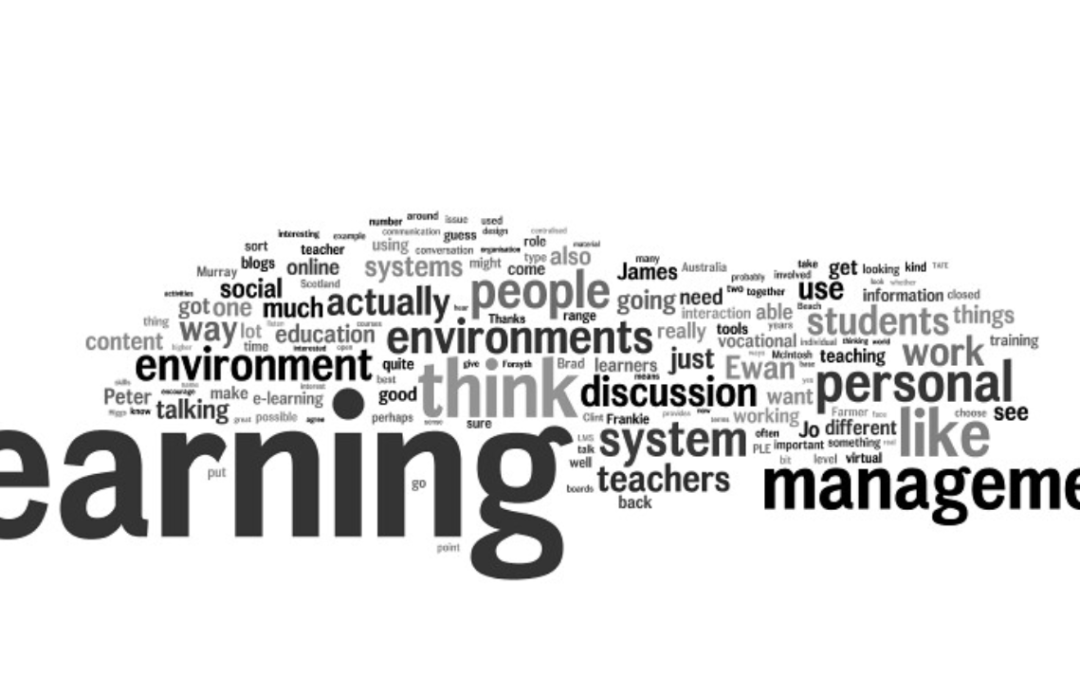
by Fitz | Jun 10, 2019 | Essays, The Crafted Word Blog
Finding the Right Learning Management System
A fight worth fighting
An LMS is simply an online or app-based learning management system—an all-encompassing term for how and what a school (or a business) uses to create and manage its online courses, including: assignments, grading, reports and other feedback and information from teachers to students, parents and administrators—and there are many LMS options out there. In broad sense, and LMS is usually a part of a school’s Student Information System (SIS) and Content Management System (CNS). For my purposes, I will focus on helping you find the right LMS for your school. Choosing the right LMS shapes and defines the academic experience of students, parents, faculty and administrators in profound ways. If it is too complex, disaster and apathy reigns supreme. If it is too simple, it does not allow for or enable a broad, rich and diverse curriculum or full and effective feedback and management.
I write this, not as a reviewer of different LMS systems or a self-proclaimed expert, but as a dabbler in learning management systems—an odd hobby, I know—and as someone who believes in the power and promise of technology to empower a wide swath of potential students, and, perhaps ironically, to simplify the process of accessing and engaging learning in a dynamic and guided way. I certainly have my favorite learning management systems, and I am not loathe to share them, but I am also well aware that I wear a somewhat myopic lens. What inspires me may not be what inspires you. My needs may not mesh with your needs, but the need for a school to think clearly when considering an LMS is compelling and a process that requires forethought. What might be great from an administrative standpoint may not be what works best for teachers and students. If the teacher experience is frustrating, the cascading effect falls onto the students, and no amount of good intent on the part of administrators can stem the flow.
What follows are some thoughts about how to choose an LMS that fits your needs. If you have any specific questions or comments, please contact me via email or leave a comment.
(more…)
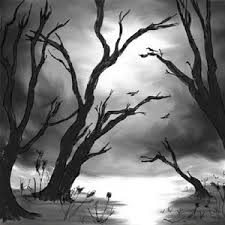
by Fitz | May 12, 2019 | Essays, The Crafted Word Blog, Workshops
― Tahir Shah, In Arabian Nights
The most powerful and enduring connection we share as a human race is our desire and need to share stories. We engage in the art of storytelling more than most of us ever realize; whether we are describing our kids’ soccer games, critiquing the latest HBO series, telling a ribald joke, or remembering a long lost friend, event, memory, book, or experience. We listen to stories in songs, in long-winded meetings, in late night BBC broadcasts or self aggrandizing talk radio, on long car rides, and in intimate conversations with friends and lovers. We tell stories for reasons that are so deeply embedded in our psyche and DNA that storytelling is a natural and intuitive response to almost any situation.
Sometimes, when stuck with a rather boorish person, we wonder why the sam hill that person insists on telling insipid stories; but, most of the time we listen, reflect, and respond—usually with stories of our own. It is out of this verbal give and take—our personal and cultural oral tradition—that we reflect and grow and expand the range of our limitations. It is our way to “shuffle off our mortal coil” while still alive. Through stories we live outside and beyond the confines of our short sojourn on earth, but while we are here and struggling through the vicissitudes of everyday life, it is stories that feed our roots and spread our canopy upwards into an infinite sky.
Stories that are worth telling once are worth retelling again and again. Out of this stream of unconscious revision a story is perfected until that story becomes part and parcel of our personal, interconnected, and communal eternity. The best stories survive the ravages of time because we know and sense with an almost mystic unknowingness that a particular story is too good or important to forget. These stories become the canons of our universal literature. We go back to those stories like spawning salmon to the streams of their birth. We need to know our source, and the best and most enduring stories lead us there, even against the tides, currents, and shoals that seem to bar the way. We need to tell and hear and read the stories that bring us to these places.
We need to limit the trivial and search for and embrace the profound stories that have weathered the ravages of time. We need to ask ourselves why we read what we read, listen to what we choose to listen to, and tell what we feel needs to be told. We can’t go on accepting the debased and vapid simply because it is there and easy at hand in its glorified, extolled, and commercialized abundance. We need to seek the higher fruit and walk among the dappled grassand pluck until time and time is done, the the silver apples of the moon [and] the golden apples of the sun.*
Today is as good a day as any to look back and in and begin moving forward. Shut something off, and turn something else on. There is something else on your shelf, something in your mind, and something within your range that is waiting for you.
The Song of Wandering Aengus
BY WILLIAM BUTLER YEATS
I went out to the hazel wood,
Because a fire was in my head,
And cut and peeled a hazel wand,
And hooked a berry to a thread;
And when white moths were on the wing,
And moth-like stars were flickering out,
I dropped the berry in a stream
And caught a little silver trout.
When I had laid it on the floor
I went to blow the fire a-flame,
But something rustled on the floor,
And someone called me by my name:
It had become a glimmering girl
With apple blossom in her hair
Who called me by my name and ran
And faded through the brightening air.
Though I am old with wandering
Through hollow lands and hilly lands,
I will find out where she has gone,
And kiss her lips and take her hands;
And walk among long dappled grass,
And pluck till time and times are done,
The silver apples of the moon,
The golden apples of the sun.

by Fitz | Apr 27, 2019 | Essays, The Crafted Word Blog, Workshops
Some thoughts from the trenches…
Not everything can be put into a box. For years I have been trying to teach middle school and high school age boys “how to write” by using a series of extremely detailed rubrics that leave little to chance, but maybe (I can’t believe I am writing this) I should just stick with helping them think imaginatively, take risks, learn the meat and bones of effective writing—and then write, write, write, write, write…
I am serious. It seems like every time I try to “teach” writing, I am met with sincere, yet vacuous eyes almost pleading to be freed from the contradictory admonitions spewing out of me like smoke from a tall factory stack on a wild and windy day.
Yet…
When I simply let them write and blog and journal about “whatever,” they sooner or later become better writers, more interesting writers, more confident writers—writers who are invested, engaged and inspired by the “process” of writing. They are more like kids at recess playing whiffle-ball for the sheer joy of the game. Not baseball you might say—but pretty damn close. By and large, when the boys come to like writing, they might actually listen to my droning. Heck, they sometimes even (maybe) want to write the classic five-paragraph expository essay.
I need to get back to the more magnanimous and enlightened practice of allowing my students to write instead of mega-focusing on teaching them how to write. In the same way they learned to speak, they will figure it out how to say what, and when and why what they write works or doesn’t work. (How’s that for convoluted writing!) I am not ready to can my rubrics and chuck them in the trash. I just think they have become the cart pushing the horse for me—an easy fallback that gives shape and form and meaning to content—never a bad thing!
A writer needs to feel that he or she is the engine pulling the train and not the passenger being pushed to a dark precipice. Every English teacher should let kids write. (Even better, every English teacher should be a writer—a flesh and bones writer in the same way our music teacher knows and plays his music and is, hence, a real musician!) Writing for the sake of writing should be, front and center, a part of every academic day. As a parent, I would be more than willing to let go of some “critical” component of the schools curriculum to allow it to happen. The old adage: “Readin’, Writin’ and ‘Rythmatic” rings pretty soundly for me. Everything else is tasty, but proscribed, icing on the cake.
Sometimes nothing works. No matter what I do as a teacher, some few of my students will learn little, write little and leave my class little the wiser, which is a sad, but hardly debatable, reality. We just don’t reach everyone, and we often don’t reach the students that need to be reached the most. In those times, all we can do is keep the red pen of criticism wisely at bay and hope they see that the door to our heart is always open and that the starting line is still there.
And let them tell their story.
And show them how to tell it well.
And hope they listen…
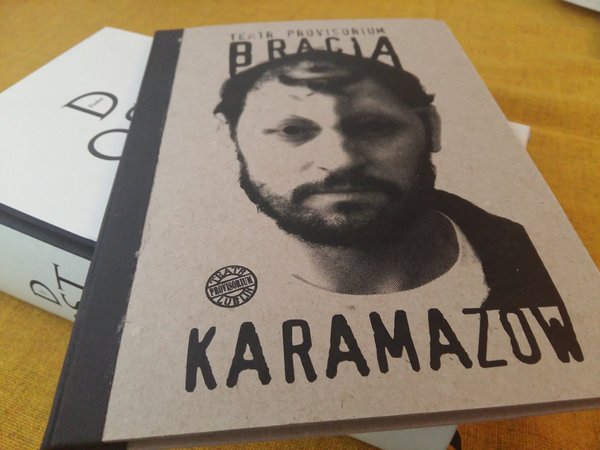
by Fitz | Apr 13, 2019 | Essays, The Crafted Word Blog, Workshops, Write
 I am constantly asking my students (and myself) to reflect on the literature they, and I, read. As I have grown older—and not necessarily wiser—I find myself only reading literature that I am sure will prod me out of my intellectual and emotional torpor, like a lizard basking in the newfound warmth of spring. Right now it happens to be The Brothers Karamazov, a book I first read as an eighteen-year-old literary newbie. It might have been the first time I didn’t turn away from a book because of the daunting length of the text and the panoramic sweep of life it covers. It is now a completely new experience, though it still resonates with the young and restless soul that even now permeates the fibres and sinews of my aging and ageless self. That book made me think.—and forced me to think beyond and into my myopic experience of life thus far.
I am constantly asking my students (and myself) to reflect on the literature they, and I, read. As I have grown older—and not necessarily wiser—I find myself only reading literature that I am sure will prod me out of my intellectual and emotional torpor, like a lizard basking in the newfound warmth of spring. Right now it happens to be The Brothers Karamazov, a book I first read as an eighteen-year-old literary newbie. It might have been the first time I didn’t turn away from a book because of the daunting length of the text and the panoramic sweep of life it covers. It is now a completely new experience, though it still resonates with the young and restless soul that even now permeates the fibres and sinews of my aging and ageless self. That book made me think.—and forced me to think beyond and into my myopic experience of life thus far.
In short, I could not read without responding. The reflections of my mind needed an outlet, so I found myself arguing and assenting long rambles in notebook journals or with anyone who would listen to me, argue with me and explore with me. In that way the novel became—and still is— a part of me. The more I wrote about what I read the more I knew the book. By knowing what I knew (and did not know). I realized that only by exploring through reflection could I answer through an essay.
Most of us have to write essays about subjects we know precious little about; hence, our essays have the taint of soured milk—still milk, but hardly worth drinking…
Our teachers mark us down for inserting the I voice into our writing as if “we” don’t really exist—as if there must always be proof beyond ourselves that “knows” more than we know—as if that is something we don’t already intrinsically know. To me, a good essay reeks of what we know, what we have explored and what we are seeking to know, and it is a damn pity when a teacher robs us any part of that triad.
You are only wrong when your facts are wrong, distorted by prejudice or bigotry, or so steep in self-indulgent arrogance that your words fail to resonate with any kind of lasting ring—like a drum without a skin or a harp without a string.
You are equally wrong when you simply spin words into a song without music, words without meaning and foundation in your own heart—without the essence of the real and palpable you to speak with a clarity that helps others to see and feel and experience “your” experience.
A reflection is simply your recreation of your inner experience of experience. In reflecting we see our warts and blemishes clearly until those imperfections are diminished by the truth and sincerity of our search for meaning and substance to give voice to that search—and that search should extend beyond yourself. No doubt if you wondered something, someone else wondered the same thing, and maybe even wrote about it.
Keep exploring until your inkwell is dry and your head is emptied.
And only then should you write your essay…
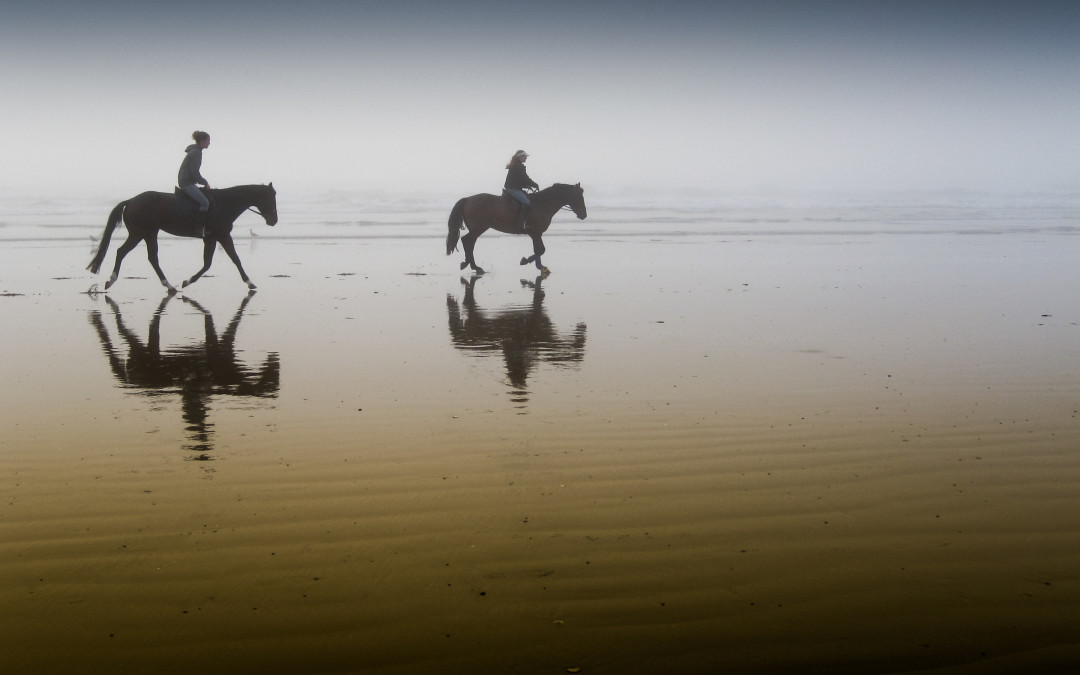
by Fitz | Apr 11, 2019 | Essays, The Crafted Word Blog, Workshops
Close Your Eyes & See
A lot of things in life fall short of the mark, but thoughtfulness has never let me down. For some forty years I have faithfully kept journals of the wanderings of my mind—most of which is lost in some way or another, but the effect hangs on like a sailor clinging to a piece of flotsam: it proves to me that I am real and not lost; it creates substance out of what might otherwise be ephemeral ether lost to the vagaries of procrastinated time. In the meandering evolution of my words set to page is left a lingering mark etched into a marble wall of time that can never be sandblasted clean.
Simple reminders that I am what I am.
It is almost frightening to know that who I am is freighted with an urgency to continually change what I am. The irony is in how tightly I must shut my eyes to see clearly into myself. Stripped bare I am a meager and skeletal portrait of a man—a shaky scaffold of dreams and desires connected inextricably to the pulsing aorta of reality.
Life. Ineffable life.
But it can not be any other way.
I am doomed and emboldened to speak the voice that barks and sings, laments and praises, and shouts and drones the inexcusable and intransigent me in glorious triumph and ignominious defeat. I need to see my reflection in stark contrasts: I need a barometric gauge to sense and measure the depth of the coming storms or easy weather. I need to know when to set anchor or set sail.
And all I have is words to guide me.
Words and love are all that is real to me, but it is only words that I question. I do not question my love or unequivocal devotion to Denise or our children or the eclectic diaspora of extended family. I only struggle with the constructs I create. I question my words because they are not created for me—they are created for you; hence, they are weighted by all that preys upon me: vanity, desire and a mania for a purposeful and meaningful life—the very stating of which is almost an anathema, a self-aggrandizing denial and abnegation of human empathy!
Stripped of words I can only utter and respond to what is palpably real and connected to me. I protect my own in spite of all else. Viciously so. And that is good and right and is built into me, and it is unerringly built into me by the hands of a creator beyond my understanding, enough so that I question my reflection on any still waters I see. Beyond faith. Beyond the myopia of circumstance. Beyond anything we share. I am left with words.
It simply is.
I write because I know no other way, but I have no illusions that my path is leading to a greater source. I am constantly humbled by the misdirections I follow. I am less of a guide than a foot soldier commandeered to go foot-first into the minefields of a greater field laced with weed and flower. My solace is that I am still alive—that somehow I have navigated well enough to be where I am—safe, secure, and almost retired into a golden age. I covet my joy like a child his or her inheritance of perpetual splendor. I cannot count or measure my blessings; I can only pass them on.
So I close my eyes at night and expect an infinite dawn.
And so can you.
by Fitz | Apr 9, 2019 | Essays, Rubrics, The Crafted Word Blog, Workshops
What a boring title…rubric-based writing…I am sure this would be a big seller on Amazon: “Buy Now and Save on Fitz’s Narrative Paragraph Rubric!” Frustration guaranteed! Used by hundreds of angry students…
And I could on and and on because I have heard it all, seen it all, and lived it all because anytime I assign a writing piece to a class, it is almost like some law of Newtonian physics comes into play: there is an equal and opposite reaction to my intentions, and you–my young students–will find all sorts of ways to make the assignment seem like horrible, cruel, and useless punishment.
I mean—using a rubric to make our “writing voice” sound natural is like using paint to make an apple look ripe. Maybe I should be fired.
Or maybe you should just man up, read the entire assignment (otherwise known as directions, which I am sure you hope your dentist or surgeon follows) and find out if maybe—just maybe— this rubric thing will help you write a paragraph, essay, or story that really does sound like “you” speaking at your very best.
All writing is artificial. It may be sincere and honest and heartfelt, but it is still fake; you can’t peel the words off the screen and eat them. But— good writing makes a writer and the reader feel more real because the power of the words splayed upon the page helps us experience life in a deeper and more direct way, and therein lies the paradox of writing: if any of us wish to become a more real writer, we need to learn how to make readers feel more real by using the double secret techniques and tools of the writer’s trade. We need to learn how to slowly and deliberately craft our thoughts into words that look, feel and sound real.
Like an acorn or a cat…
I’ve created these rubrics and tweaked them over the years to help you–and me–figure out how to best express our thoughts and feelings in a way that feels alive and natural. There really are no rules in writing. It all boils down to your desired audience wanting to keep reading whatever you are writing–and when that reader is done to have them say, “Yes, that was time well-spent!”
Give them a try. Discard what you don’t like. Add in in what you want.
Every writer is essentially an explorer













Recent Comments